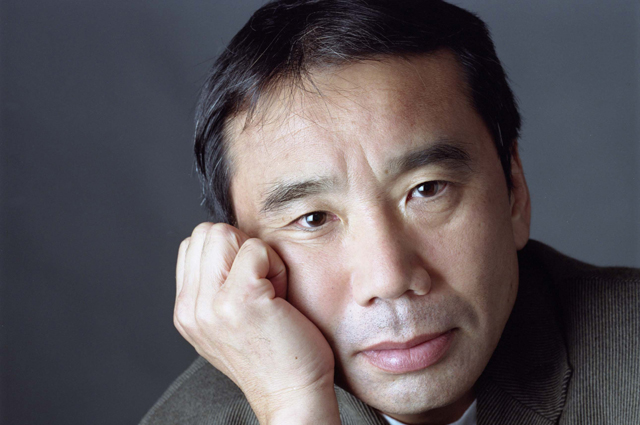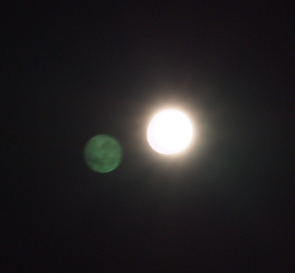With the Nobel Prize for Literature decision to be announced this week, the author known for his surreal fictions is the current favorite for the award.
By Alec Jordan
What would you do if you came across a zipper on a wall, slightly open to a void beyond? This is a question that a Japanese artist, Jun Kitagawa, poses to people who come across his work. His first piece was just a mural, but he has graduated to three-dimensional zippers that open up spaces in the interiors of rooms or the surface of lakes, making us think a bit about what might lie beyond these rifts created in the common places we take for granted, while hinting at the erotic potential of “unzipping” at the same time.
Entrances into other worlds like these, just small steps away from our daily life but offering the promise of experiences far beyond what we live from day to day, are perfectly suited to the imagination of Haruki Murakami, who is in the running for the Nobel Prize for Literature this year. Given that the writer is also an avid marathoner, it is fitting that he has been in this race for some time: he has been among the favorites to win for several years.
For his fans, and even his detractors, the hallmarks of Murakami’s style are clear: solitary characters who stand at some remove from society; hard-boiled dialogue; attention to music (particularly jazz and classical); detailed descriptions of simple food being prepared; and sex that is usually explicit, and frequently odd—a combination that landed a scene from 1Q84 among the nominees for The Guardian’s “Bad sex award in fiction” in 2011. Of course, what stands out the most in his books are the matter-of-fact departures from the everyday into the otherworldly: a simple-minded man who can speak to cats (Kafka on the Shore), a giant frog trying to prevent a catastrophic earthquake (after the quake), or a second, green moon (1Q84), to give just a few examples. It is easy to move into these worlds: characters step into them through acts as simple as climbing down a ladder or picking up a phone call. As readers, we get a glimpse of these worlds in his short fiction, but it is in the longer novels that the cumulative effect of these surreal events builds up page after page, and like long-distance runners in the zone, we can lose track of time. Finishing the 900-plus pages of 1Q84, for example, feels a bit like waking up from an extended dream.
If he wants the honor, Murakami might be pinching himself at the moment, because the odds makers have him ranked as a 3 to 1 favorite. But last year he was in at 10 to 1, and lost to China’s Mo Yan, and many of the marks against him are as clear as the elements of his style are. Some critics point to aimlessness and a lack of a strong plot, particularly in his longer novels. Some argue that his ideas are shallow or repetitive. He might be too popular, or too commercially successful to win a Nobel Prize. Still others say that his work is apolitical, or disengaged from the problems of today’s world.
But the author responds to social issues in his way. For example, each one of the short stories in the collection after the quake has connections to the great Kobe earthquake of 1995, and Underground is a nonfictional investigation of the Aum Shinrikyo sarin gas attacks on the Tokyo subway. His most recent novel, Colorless Tsukuru Tazaki and His Years of Pilgrimage, is set in a post-3/11 Japan and comes to grips with the emotions that followed on the disaster. His decision to both accept the Jerusalem Prize in 2009, and to give an acceptance speech that touched on the issue of Palestine, was certainly a political act. In light of the recent flare-ups over the Senkakus, he took a clear stand against stubborn nationalism on both sides, and The Wind-Up Bird Chronicle examines Japan’s conduct in China during World War II. At heart, though, he is not a declaimer, and the symbols of his dreams may not easily translate into political messages.
“. . . there should always be a space for work that reminds us of the possibility of other worlds that lie only a little ways away”
In general, Murakami does not enjoy spending time in the public eye; following the tremendous success of his novel Norwegian Wood, he left Japan for some time, partially to escape the adulation that this work brought him. In this sense, he may even hope not to win, because he might need to get away from the country again.
The announcement will come this Thursday. Like any good writer, the Nobel decision committee knows how to keep us in suspense. For the past several years, some of his more ardent supporters have gathered on announcement nights at a cafe and event space in Ogikubo called Rokujigen (Sixth Dimension). This space used to house what was once a famous jazz club: an appropriate location, given that Murakami owned a jazz bar—Peter Cat—before he began to write.
If Murakami is chosen this year, it will stand as a small celebration, not just for Japan after being awarded the 2020 Olympic Games, but also for an art that doesn’t necessarily clamor for or against. It’s not that we don’t need to do battle with our art and words some of the time, but there should always be a space for work that reminds us of the possibility of other worlds that lie only a little ways away: behind a zipper, down a ladder, or waiting for us at our front door.
(Main image: Pi Theatre. Image of double moon: Alec Jordan)










